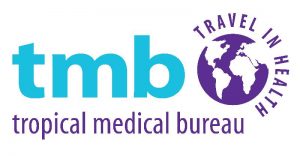
 Are you concerned about catching rabies when travelling abroad? In the Tropical Medical Bureau, the travel medical professionals want to help you to take extra precautions against the infection, before your next adventure.
Are you concerned about catching rabies when travelling abroad? In the Tropical Medical Bureau, the travel medical professionals want to help you to take extra precautions against the infection, before your next adventure.
Rabies is found throughout the world, particularly in Asia, Africa, and central and South America. The disease is caused by a virus that can be transmitted from the bite of an infected animal, or when the animal’s saliva contacts a person’s mouth, eyes, or an open wound.
Dogs are the most common source of infection to humans, but in many exotic parts of the world, other animals such as monkeys, cats, racoons and bats are also a source of potential exposure to the disease.
Without early treatment rabies is usually fatal, so it is vital that you take all the right safety precautions when travelling in an area where rabies is a rick.
Here are some preventive measures to ensure that you stay healthy during your travels:
Research your destination: Prior to travel, you should check if rabies is present at your destination. This is particularly important if you are participating in activities such as hiking or camping, where you are likely to come into contact with wild animals that may have rabies.
Pre-exposure vaccination: This vaccine may be used to confer antibody protection to individuals before they are infected. The vaccine is usually given on three occasions over a 3 to 4 week period and will help to protect you from the disease for a number of years.
Avoid contact with animals: It can be tempting to pet a cute dog or monkey when abroad, but it is important to avoid contact with all animals (both wild and domestic). Animals with rabies are likely to be less cautious than usual, and they may be more likely to approach people.
Inform your children: If you are travelling with a child, make sure they are aware of the dangers. Children are more likely to approach animals and more likely to sustain severe bites. It is vital that your children tell you if they have been bitten, scratched or licked by an animal.
Post-exposure treatment: In the case that you have been bitten, medical advice should be obtained immediately. Post-exposure treatment to prevent the establishment of rabies infection involves first-aid treatment of the wound, followed by a course of the rabies vaccination. If you received the pre-exposure vaccination a shorter course of post-exposure treatment with fewer doses is provided.
For information about areas where rabies is a risk, visit the TMB destination page or talk to a travel medical professional at your local TMB clinic.
To book an appointment for vaccinations and see a list of our base and associate clinics, please contact the Tropical Medical Bureau on 00-353-1-2715-200 or visit www.tmb.ie.
TravelMedia.ie
Sinead Farrelly Pendred
Phone: 086 2462206
Email: sinead@travelmedia.ie
Niamh Waters
Phone: 086 0492394
Email: niamh@travelmedia.ie
Follow us on Twitter @TravelMedia_ie and on Facebook www.facebook.com/TravelMedia.ie.
